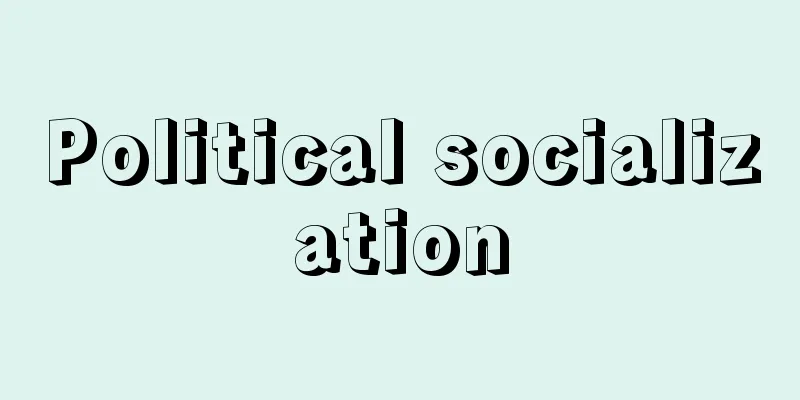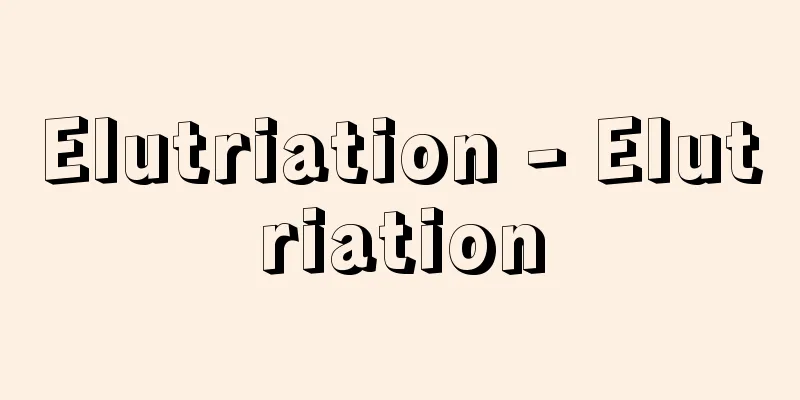Political socialization

|
It refers to the process by which the political culture of a particular society is transmitted and accepted by people who are exposed to it for the first time. Political culture is the totality of knowledge, beliefs, values, norms, expected patterns of behavior, and symbols that regulate and interpret the political actions of members of a particular society. The concept of socialization was originally developed in American sociology after World War II, and it meant the process by which children acquire the basic values and norms of the society to which they belong and learn the appropriate roles to play as members of that society. Naturally, political socialization, as part of this socialization, refers to the process by which children born into a society or immigrants from abroad learn the appropriate political roles to play as members of that society. Incidentally, it was D. Easton who made this concept of political socialization one of the main concepts in political science. He focused on the importance of the degree of support for the system among its members as a condition for the stability of a political system, and believed that if the process by which its members acquire the basic values and norms that support the political system could be elucidated and this knowledge could be used to manipulate this process, then the stability of the political system could be increased. Based on this theoretical premise, political system theorists led by Easton have been active in the United States in conducting research on political socialization by living with children in kindergartens, elementary schools, and junior high schools to investigate when, under what environment, and through what agents (mediators) American political culture is transmitted to and learned by children, and have produced many results. If a state facing a legitimacy crisis were to actively utilize the results of such political socialization research and succeed in instilling faith in the legitimacy of power in minors and in adults through tertiary socialization agents such as the mass media and political organizations, the crisis could be prolonged. If a state were to attempt conscious political socialization in this way, it would turn into political education itself. This is because political socialization is called political education when it is consciously and systematically undertaken with a sense of purpose by the government of the day. [An Seshu] [Reference] |Source: Shogakukan Encyclopedia Nipponica About Encyclopedia Nipponica Information | Legend |
|
ある特定の社会の政治文化がそれに初めて接する人々に伝達・受容される過程をいう。政治文化とは、ある特定の社会の構成員の政治行動を規制し、解釈する、知識・信念・価値・規範・期待された行動様式・象徴の総体をいう。もともと、社会化という概念は第二次世界大戦後、アメリカ社会学で開発された概念で、それは、子供がその所属する社会の基本的価値や規範を身につけ、その社会の構成員としてふさわしい役割を学習する過程を意味した。政治的社会化は、当然、この社会化の一環として、ある社会に生まれ落ちた子供や外国からの移民がその社会の構成員としてふさわしい政治的役割を学習する過程を意味する。 ところで、この政治的社会化概念を政治学の主要な概念の一つにしたのは、D・イーストンである。彼は、政治体系の安定の条件として、その構成員の体系への支持度の重要性に着眼して、政治体系を支える基本的価値や規範をその構成員が身につけていく過程を解明し、その知識を活用してこの過程を操作することができるなら、その安定度を高めることができる、と考えた。こうした理論的前提下に、アメリカでは彼を中心とする政治体系論者によって、子供たちにいつ、どのような環境の下で、どのようなエージェント(媒介者)を通じてアメリカの政治文化が伝達され、学習されていくのかを、幼稚園や小・中学校で子供といっしょに生活して実態調査を行う政治的社会化研究が盛んになり、多くの成果をあげている。 もし、正当性の危機にあるある国家がこうした政治的社会化研究の成果を積極的に活用して、未成年者に、そして成人に対しては第三次社会化エージェントのマス・メディアや政治団体などを通じて権力の正当性に対する信仰を植え付けることに成功するなら、その危機が引き延ばされることもあろう。このように、国家による意識的な政治的社会化が試みられるなら、それは政治教育そのものに変じてしまうであろう。なぜなら、政治的社会化が時の政府によって意識的・体系的に目的意識をもって企てられる場合、それを政治教育というからである。 [安 世舟] [参照項目] |出典 小学館 日本大百科全書(ニッポニカ)日本大百科全書(ニッポニカ)について 情報 | 凡例 |
Recommend
normal strain
…( d - d 0 )/ d 0 is called the transverse strain...
Ishimategai (English spelling) short date mussel
A bivalve mollusk of the family Mytilidae in the ...
Qian Dehong - Sen Tok Kou
A Yangming scholar from the Ming Dynasty in China...
Moated village
The Xinglongwa site, discovered in the Inner Mongo...
Apopi - Apopi
…Egyptian murals depict the process in which the ...
Vierwaldstätter See (English spelling)
…the name of a canton (state) and its capital tha...
Ceruloplasmin
…The green rings caused by copper deposition on t...
Masaaki Maeda
Year of death: August 11, 1921 Year of birth: 12 M...
Dumetella carolinensis (English spelling) Dumetella carolinensis
…For example, it has been reported that even mock...
Kobayashi [city] - Kobayashi
A city in the western part of Miyazaki Prefecture....
Selections - Senjyusho
A collection of Buddhist tales from the Kamakura ...
Han-shan Shi-de (English spelling)
Two legendary poet-monks from the Tang Dynasty in ...
Law for preventing collisions at sea
A basic law aimed at preventing ship collisions a...
York (person's name) (English spelling)
…The 48-member expedition left St. Louis in May 1...
Cloth and loincloth - Silk loincloth
〘 noun 〙 Ancient men's clothing. Clothing cons...





![Komatsushima [city] - Komatsushima](/upload/images/67cb9af045f6a.webp)



